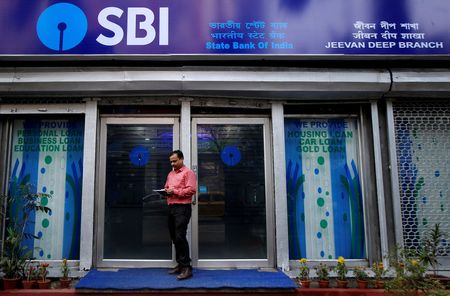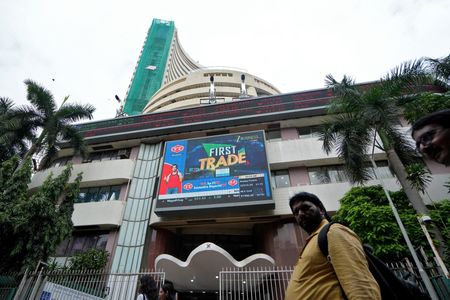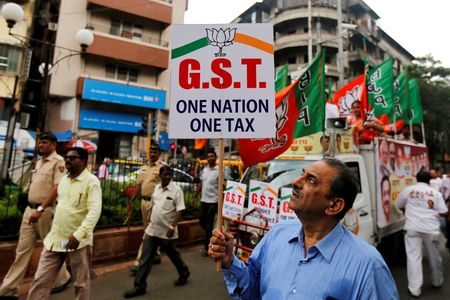By Dharamraj Dhutia and Khushi Malhotra
MUMBAI (Reuters) – Fundraising through infrastructure bonds is set to become more expensive for Indian lenders that have used them to raise record funds as investors demand higher returns amid increased debt supply.
Domestic lenders have raised a record 892 billion rupees ($10.26 billion) in this financial year, with some, including State Bank of India, likely to tap this route before the fiscal year ends in March.
“Over the last month, demand from long-term investors has been weak, resulting in widening of spreads in the long-term corporate bond segment,” said Ketan Parikh, head of fixed income at ICICI Prudential Life Insurance.
Rising debt issuances, especially by banks and other long-term issuers, have also led to spreads widening between corporate and government bond yields, he added.
State-run Bank of Maharashtra, Punjab National Bank and Bank of India have raised a total of 72.52 billion rupees, about 55% of their 130 billion-rupee target, including greenshoe options.
The lenders have also had to pay a higher premium over the corresponding maturity government bond yield compared to their previous debt issuance.
In July, Bank of India sold 10-year infra bonds at a spread of 56 basis points above the 10-year benchmark bond yield, while Bank of Maharashtra raised funds at a spread of 85 bps over the benchmark yield. Both lenders had to pay an additional spread of 15 bps for the sale.
None of the lenders responded to Reuters’ emails seeking comment.
“Large institutional investors, having met their minimum regulatory investment requirements, are now demanding higher yields amid expectations of a substantial state debt supply through March,” said Venkatakrishnan Srinivasan, founder and managing partner at debt advisory firm Rockfort Fincap.
Indian states are scheduled to borrow 2.25 trillion rupees in the last five weeks of the financial year.
While yields in the secondary market have gone up by 6-8 bps since the central bank’s rate cut decision earlier this month, investors are constantly bidding at higher levels for new debt placements.
Along with the lenders, other state-run companies such as REC, PFC, NABARD and IIFCL, closed their issues recently without meeting their targets, signalling overall investor fatigue.
Indian lenders unable to raise planned quantum despite paying higher yields:
Lenders Planned quantum Quantum Yield spread over Spread in
in bln rupees raised 10-year government previous
bond yield issue
Punjab National Bank 50 29.50 63 NA
Bank of India 50 26.90 71 56
Bank of Maharashtra 30 16.12 100 85
($1 = 86.9190 Indian rupees)
(Reporting by Dharamraj Dhutia and Khushi Malhotra; Editing by Sonia Cheema)











